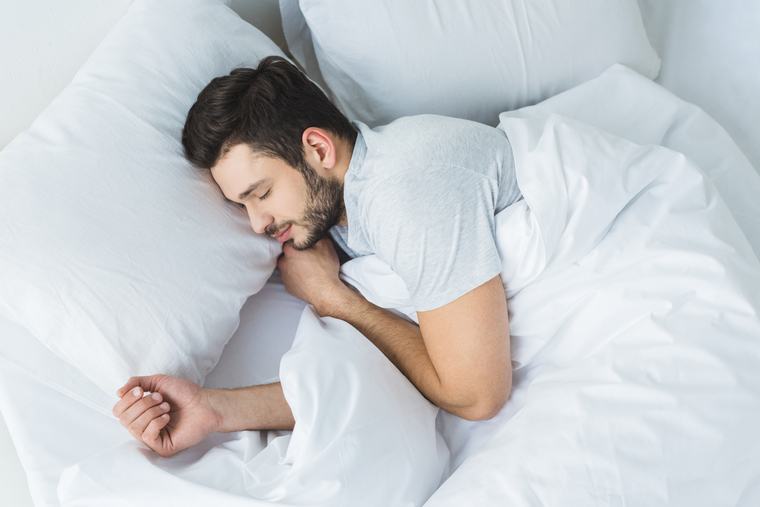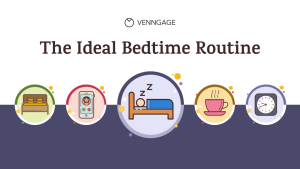Many people think that less sleep means more time to get things done. But that’s not true. Sleep isn’t a waste of time; it’s one of the best ways to improve your memory, focus, and overall performance. The connection between sleep and work is stronger than we think. Adequate sleep allows your brain to function optimally. Without it, everything from creativity to decision-making begins to falter.
In a world overrun by endless tasks and digital distractions, many people forget the importance of rest. But research shows that adequate sleep is essential for productivity. Understanding this secret connection can help you accomplish more every day without feeling overwhelmed.
Why You Need More Sleep Than You Think
Sleep doesn’t just rest your body; it also rejuvenates your brain. During deep sleep, your brain repairs itself, processes emotions, and stores memories. Without enough sleep, you can’t concentrate, react quickly, or solve problems effectively.
Without enough sleep, you can’t focus on just one thing. Even when you think you’re multitasking, your brain struggles to keep up. This mental fatigue leads to more mistakes, slower thinking, and less creativity.
Prioritizing a good night’s sleep isn’t about laziness; it’s about investing in clearer thinking, better performance, and getting more done.
How Sleep Changes Your Focus and Concentration
To stay focused, your brain needs rest. The part of your brain that controls attention and decision-making—the prefrontal cortex—slows down with sleep deprivation. This makes it harder to focus on goals, remember things, or solve problems quickly.
Even one night of sleep deprivation can make it harder to concentrate and remember. Scientists call this “cognitive drift,” and it happens over time. Your mind wanders from thought to thought instead of staying focused.
On the other hand, when you get enough rest, your attention span automatically improves. It’s easier to concentrate on a task, and your mental clarity improves significantly.
The Connection Between Sleep, Decision-Making, and Creativity
A clear mind is essential for making good decisions. Studies show that people who don’t get enough sleep are more likely to make hasty or risky decisions because their brains have trouble predicting what will happen next.
Sleep is also crucial for creativity. “Neural rewiring” refers to the process by which the brain forms new mental connections during deep sleep. This allows you to think outside the box, generate unique ideas, and look at problems from different perspectives.
That’s why many brilliant people, artists, and inventors prioritize rest. They know that inspiration doesn’t come from fatigue, but from a rested mind.
Motivation, Energy, and Sleep Quality
Adequate rest directly affects your motivation and energy. When you’re tired, it’s difficult to complete simple tasks. This mental fatigue can lead to procrastination, loss of interest, and even a loss of motivation.
On the other hand, adequate sleep can revitalize your body and mind. You’ll feel more motivated, enthusiastic, and able to take on challenges throughout the day. Serotonin and dopamine levels rise during sleep. These chemicals are closely linked to motivation and well-being.
If you sleep better, your energy and motivation will naturally improve, and you won’t have to resort to coffee or medication.
Sleep and Staying Calm
Your emotional state significantly impacts how much you accomplish. When you’re sleep-deprived, the amygdala, the part of your brain that controls emotions, becomes hyperactive. You react more quickly to worry, anger, and other negative emotions.
A lack of sleep can also make it harder to manage your emotions and think clearly in stressful or tense situations. On the other hand, when you get enough sleep, your brain manages your emotions, helping you stay calm and focused, even under pressure.
A well-rested mind is stronger, stays more motivated, and processes problems clearly.
Sleep and Health: What You Need to Know
Lack of sleep not only makes you tired but also harms your health. Chronic sleep deprivation is linked to an increased risk of obesity, cardiovascular disease, diabetes, and a weakened immune system. When you’re tired, your metabolism slows, and you crave foods high in sugar or fat for quick energy.
When you’re physically tired, it’s difficult to stay active during the day. The problem is that your body lacks the energy it needs to function properly. On the other hand, getting enough good sleep can speed up your metabolism, strengthen your immune system, and improve your overall health.
Sleep Benefits You
If you want to perform at your best, make sleep your top priority. Make sure you go to bed and wake up at the same time every day, even on weekends. This helps keep your body clock in sync.
Avoid coffee, alcohol, or heavy meals before bed. Turn off the lights and stay away from your computer for at least an hour before bed to create a relaxing atmosphere. Deep breathing exercises or meditation are ways to relax and clear your mind.
Keep your bedroom as quiet as possible, away from electronic devices. A cool, dark, and comfortable environment helps you rest deeply and undisturbed. Adequate sleep ensures you’ll be smarter and more productive the next day.
The Costs of Sleep Deprivation
Sleeping to get things done may seem sensible, but it’s often counterproductive. Chronic sleep deprivation can lead to stress, poor decision-making, and long-term health problems. It can also diminish your creativity, make your work less meaningful, and make it harder to stay motivated.
Think of your brain as a battery. You need to recharge your energy regularly, otherwise it runs out. Sleep is how you restore your energy. When you give your body enough rest, you don’t waste time. You give yourself the energy and focus to do your best work.
FAQs
What’s the optimal amount of sleep to get work done?
Most people need 7 to 9 hours of sleep per night. The ideal amount depends on your individual needs, but anything less than 6 hours can affect focus and productivity.
Can naps help you get more done?
Yes, a 15- to 20-minute nap can help you stay alert and focused without disrupting your sleep.
Can you catch up on sleep on the weekends?
A little extra sleep on the weekends can help, but it doesn’t completely eliminate the effects of not getting enough sleep every night. Regular sleep throughout the week is crucial.
Does using screens before bed make you less productive the next day?
Yes, the blue light from computers can disrupt your sleep cycle by inhibiting your body’s melatonin production, leading to less focus and productivity the next day.
What’s the best time to sleep for optimal alertness?
Your natural circadian rhythm works best when you sleep between 10 p.m. and 6 a.m. This helps your body reach its deepest, most restful sleep phase.
In short
There’s a simple yet powerful secret link between sleep and work: the more rested you are, the more productive you’ll be. Sleep nourishes your brain, helps you focus, and makes it easier to think clearly and be artistic. Without sleep, even the most strict sleep schedule falls apart.
The longer you work, the more productive you’ll be, and the clearer your mind, the more productive you’ll be. Making sleep a priority not only improves your daytime performance, but also improves your life.
A good night’s sleep isn’t a prize; it’s a prerequisite for success. If you listen to your body and give it the rest it needs, you will feel your best every morning.




